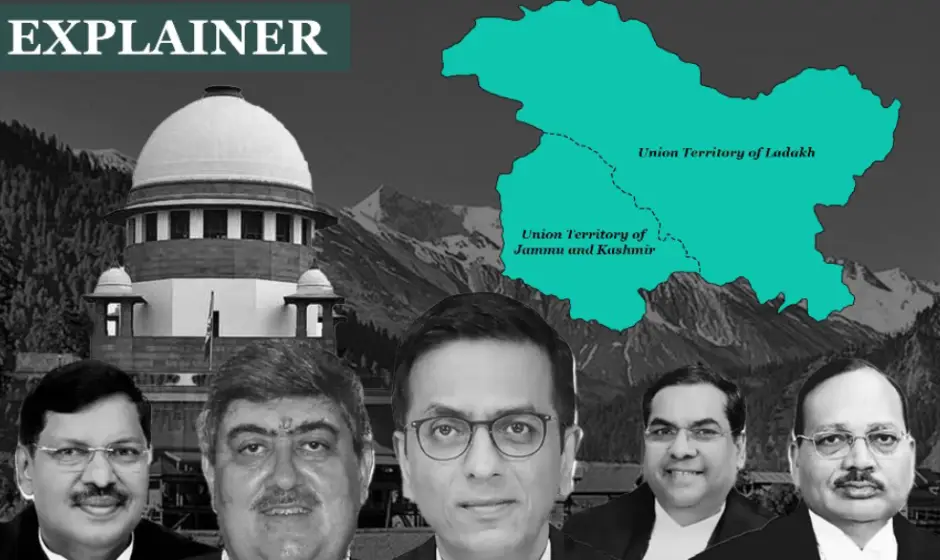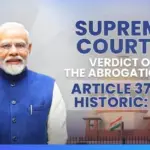In a significant judicial endeavour, the Supreme Court of India, led by a five-judge Constitution Bench comprising Chief Justice DY Chandrachud, Justices Sanjay Kishan Kaul, Sanjiv Khanna, BR Gavai, and Surya Kant, was tasked with adjudicating a series of petitions challenging the Centre’s decision to revoke Article 370. This bench faced the formidable task of navigating through a maze of constitutional, political, and social considerations. The hearings, which extended over 16 days, followed by a deliberation period of over three months, culminated in a historic verdict delivered on December 11, 2023.

This verdict was not merely a legal interpretation of the Constitution. It delved deep into the multifaceted relationship between the Indian government and the Jammu & Kashmir region, addressing broader implications encompassing political, social, and human rights dimensions. On this landmark day, the Supreme Court rendered a judgment that resonated with the foundational principles of the Indian Constitution. The Court upheld the sovereignty and integrity of India, a core value that resonates deeply with every Indian citizen. In its ruling, the Supreme Court made a pivotal observation that the decision made on August 5, 2019, was aimed at enhancing constitutional integration, rather than fostering disintegration. Furthermore, the Court recognised the transient nature of Article 370, validating the government’s stance that the article was not meant to be a permanent feature of the Indian Constitution.
This acknowledgement by the Supreme Court was crucial in reaffirming the legal and constitutional basis for the amendment of Article 370. The Supreme Court’s decision thus marked a seminal moment in India’s constitutional history. It provided judicial clarity on a contentious issue, reaffirming the principles of national unity and constitutional governance. The judgment also set a precedent for how constitutional changes of such magnitude are to be perceived and interpreted in the context of India’s evolving political and social landscape.


